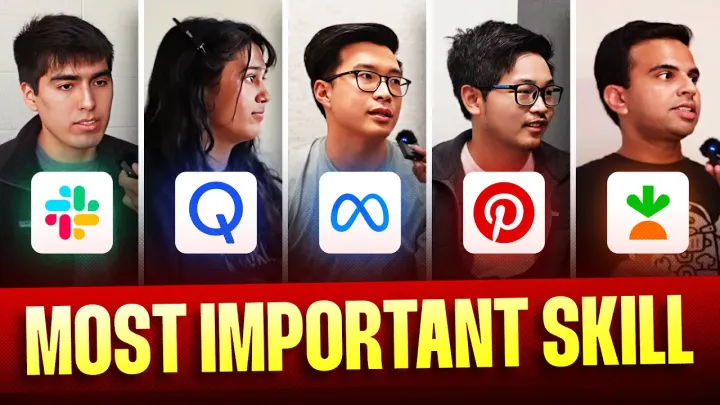Capitalizing On Opportunities As An Engineer

Last Friday, at an office social, I noticed one of the engineers standing off on her own, completely disengaged from the others. I asked how she was doing, and she immediately revealed that she was unhappy with her role. She was simply not excited by the work she was doing.
I asked, “What kind of a challenge would make you jump out of bed each day?”
She wanted to get into Platform and Tooling, but the only open role was for the Tech Lead. With only a few years of experience in the field, she was filled with trepidation when considering whether to apply for the TL role.
I've noticed this pattern throughout my career: engineers often disqualify themselves when pursuing opportunities. This engineer put herself out of the running for 2 reasons:
- "I am not a senior engineer since I only have 2 years of experience"
- "I've never led a team before"
Here's the thing: in the world of software, you can't know everything. You should view the job description as a guideline and not a requirement of what is expected. There is always a first time for leading and managing projects.
This engineer had vast experience in the mobile community and was always willing to answer questions. However, her self doubt made it difficult to step into a role that I knew she could excel in.
My advice to her was to be proactive and confident.
On Operating at The Next Level as a Software Engineer
First, market yourself for the role you want.
Maintain a list of all the projects you've contributed to. Highlight what you did to improve the code and developer experience. It could be a simple code clean up or a refactor of a component for her own project. (See this relevant Q&A about tracking your accomplishments.)
- If you're on a customer-facing team, you have to understand ways to evaluate customer problems.
- If you're on a platform team, your customers are now other developers and you have to know how you can best serve them.
The engineer from above had tons of great stories from her time in the company. She was also able to explain the business impact to her product manager. This is a common trait in a great tech leads as talked about in "What Makes A Truly Great Tech Lead?".
She didn’t have a title of a "Senior Software Engineer" but she was already operating at that level in some aspects.
On Dealing with the Years of Experience (YoE) Requirement
I have never paid attention to this part in job descriptions and neither should you. This is just a way to gate keep or low ball candidates and keep people at that level happy. As long as you can justify why you deserve a certain role and relevant experience, it won’t matter if you meet the number of years requirement.
In fact, you can also use this as a mechanism of growth. Apply for roles that are a level above you, if you manage to get them, you’ve demonstrated and earned that promotion either in your current company or at a new one. If you don’t, use that opportunity to seek feedback on what is missing and leverage that to your advantage.
On Leading a Team
This engineer technically hadn't led a team before. I recommended she talk to the hiring manager:
I am really interested in the TL role on your team since I am highly passionate about DevX and Tooling projects. In the past, I have delivered A, B, and C projects that had X, Y and Z impact on the health metrics/performance. While I have never led a team, I am sure with your support I'm confident I can step into the position
Through this outreach approach you have:
- specified your interest in the role and demonstrated your passion and courage about a team; read more to learn How To Find A Good Team With Career Growth Opportunities.
- provided an insight on why you are a great candidate for that team; read more about How To Earn Respect Fast as an Engineer
- proven your understanding of effort and impact of the projects you have worked on
- given the manager a clear outcome to work on i.e. you want to work on your leadership skills
As engineers, it can be hard to make the transition into a new role or job. However, with some effort and self-marketing, it is definitely possible. Asking for what you want is essential. As they say, "If You Don't Ask, You Don't Get."
Written by Ishan Khanna. If you’re interested in growing as an Android Engineer you can read more in-depth articles about Android and Gradle on my personal blog.




Comments ()